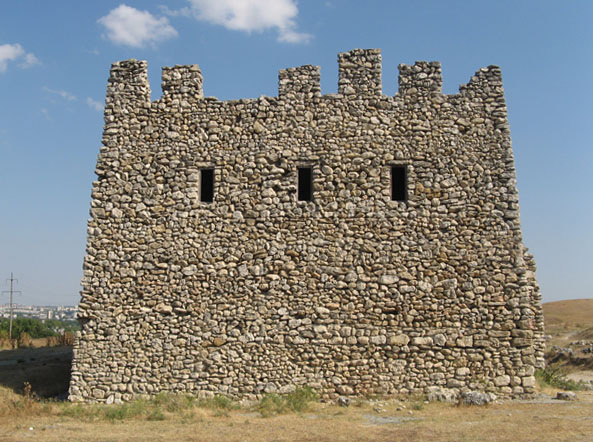Skilurus on:
[Wikipedia]
[Google]
[Amazon]
 Skilurus, or Scylurus, was a renowned
Skilurus, or Scylurus, was a renowned
 Skilurus, or Scylurus, was a renowned
Skilurus, or Scylurus, was a renowned Scythian
The Scythians ( or ) or Scyths (, but note Scytho- () in composition) and sometimes also referred to as the Pontic Scythians, were an ancient Eastern Iranian equestrian nomadic people who had migrated during the 9th to 8th centuries BC fr ...
king reigning during the 2nd century BC. His realm included the lower reaches of the Borysthenes and Hypanis, as well as the northern part of Crimea
Crimea ( ) is a peninsula in Eastern Europe, on the northern coast of the Black Sea, almost entirely surrounded by the Black Sea and the smaller Sea of Azov. The Isthmus of Perekop connects the peninsula to Kherson Oblast in mainland Ukrain ...
, where his capital, Scythian Neapolis, was situated.
Skilurus ruled over the Tauri
The Tauri (; in Ancient Greek), or Taurians, also Scythotauri, Tauri Scythae, Tauroscythae ( Pliny, ''H. N.'' 4.85) were an ancient people settled on the southern coast of the Crimea peninsula, inhabiting the Crimean Mountains in the 1st millen ...
and controlled the ancient trade emporium of Pontic Olbia, where he minted coins. In order to gain advantage against Chersonesos, he allied himself with the Sarmatian
The Sarmatians (; ; Latin: ) were a large confederation of Ancient Iranian peoples, ancient Iranian Eurasian nomads, equestrian nomadic peoples who dominated the Pontic–Caspian steppe, Pontic steppe from about the 5th century BCE to the 4t ...
tribe of Rhoxolani
The Roxolani or Rhoxolāni ( , ; ) were a Sarmatians, Sarmatian people documented between the 2nd century BC and the 4th century AD, first east of the Borysthenes (Dnieper) on the coast of Lake Maeotis (Sea of Azov), and later near the borders o ...
. In response, Chersonesos forged an alliance with Mithridates VI
Mithridates or Mithradates VI Eupator (; 135–63 BC) was the ruler of the Kingdom of Pontus in northern Anatolia from 120 to 63 BC, and one of the Roman Republic's most formidable and determined opponents. He was an effective, ambitious, and r ...
of Pontus. Skilurus died during a war against Mithridates, a decisive conflict for supremacy in the Pontic steppe
Pontic, from the Greek ''pontos'' (, ), or "sea", may refer to:
The Black Sea Places
* The Pontic colonies, on its northern shores
* Pontus (region), a region on its southern shores
* The Pontic–Caspian steppe, steppelands stretching from n ...
. Soon after his death, the Scythians
The Scythians ( or ) or Scyths (, but note Scytho- () in composition) and sometimes also referred to as the Pontic Scythians, were an Ancient Iranian peoples, ancient Eastern Iranian languages, Eastern Iranian peoples, Iranian Eurasian noma ...
were defeated by Mithridates (ca. 108 BC). Either Skilurus or his son and successor Palacus
Palacus or Palakus was the king of Crimean Scythia who succeeded his father, Skilurus. Resuming the latter's war against Mithridates VI, he attempted to besiege Chersonesos Taurica, Chersonesos but was defeated by Pontic forces under Diophantus (g ...
were buried in a mausoleum at Scythian Neapolis; it was used from ca. 100 BC to ca. 100 AD.
Pseudo-Plutarch Pseudo-Plutarch is the conventional name given to the actual, but unknown, authors of a number of pseudepigrapha (falsely attributed works) attributed to Plutarch but now known not to have been written by him.
Some of these works were included in s ...
, in ''Sayings of Kings and Commanders'', reports the following version of the Aesop
Aesop ( ; , ; c. 620–564 BCE; formerly rendered as Æsop) was a Greeks, Greek wikt:fabulist, fabulist and Oral storytelling, storyteller credited with a number of fables now collectively known as ''Aesop's Fables''. Although his existence re ...
ic fable " The Old Man and his Sons": "Scilurus on his death-bed, being about to leave eighty sons surviving, offered a bundle of darts to each of them, and bade them break them. When all refused, drawing out one by one, he easily broke them; thus teaching them that, if they held together, they would continue strong, but if they fell out and were divided, they would become weak." ''cf.'' "Unity makes strength
"Unity makes strength"; ; ; . is a motto that has been used by various states and entities throughout history. It is used by Belgium, Bulgaria, Malaysia and Georgia (country), Georgia on their national coat of arms, coats of arms and is the ...
”.
References
*''Content of this page in part derives from the ''Great Soviet Encyclopedia
The ''Great Soviet Encyclopedia'' (GSE; , ''BSE'') is one of the largest Russian-language encyclopedias, published in the Soviet Union from 1926 to 1990. After 2002, the encyclopedia's data was partially included into the later ''Great Russian Enc ...
'' article on the same subject.''
{{reflist
Scythian kings
Ancient Crimea
2nd-century BC monarchs in Europe
2nd-century BC Iranian people